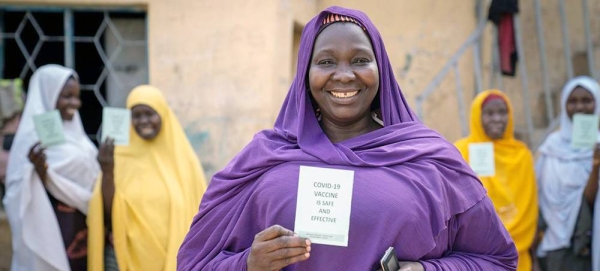
The Saudi Railways Company (SAR) will launch a special program to localize the railway industry next week. This was announced by CEO of SAR Dr. Bashar Al-Malik.
The launch will be made during the activities of the first edition of the Saudi International Railways Conference, which will be held under the patronage of Minister of Transport and Logistics and Chairman of the Board of Directors of SAR Eng. Saleh Al-Jasser, in Riyadh on Nov. 20 -21. The conference will review the latest developments and innovations in the railway sector at the local and international levels.
Al-Malik said that the SAR was able to achieve a local spending rate exceeding 50 percent during 2023, and aspires to raise it to 60 percent by 2025 through sector partners. “Clear targets and promising investment opportunities in the railway sector will be announced during the conference, and these include establishing factories within the Kingdom, localizing services, and transferring knowledge with major international companies in the railway industry. This is through empowering and supporting the private sector and small and medium enterprises, and investing in modern technologies that reflect on business sustainability,” he said.
Al-Malik said that SAR has implemented in recent years many initiatives, in cooperation with government and private entities, with the aim of localizing industries related to the operation and maintenance of train infrastructure. This had a direct impact on raising the percentage of local spending, as well as increasing the participation of the private sector, reaching more than 10,000 direct and indirect jobs, with a job localization rate exceeding 88 percent.
He stated that Saudi Arabia was the first in the region to adopt fast electric trains that do not emit any carbon emissions, most notably the Haramain High Speed Train.
“SAR has conducted hydrogen train experiments for the first time in the Middle East and Africa, as part of its commitment to achieving the goals of the Saudi Green Initiative. Preparations are underway for the next phase of these experiments,” he said.
Al-Malik stated that railway transportation services are a sustainable and environmentally friendly option, due to their ability to reduce the number of trucks and cars traveling on highways daily. This change directly contributes to reducing harmful carbon emissions, which contributes to preserving the environment. This type of transport also helps protect road infrastructure and enhances traffic safety levels.
The SAR chief noted that railways are considered as one of the basic logistical capabilities in many countries of the world, due to their vital role in facilitating the transportation of goods, trade exchange, and economic development of countries. “The Saudi railways plays an important role in ensuring the continuity and smooth flow of global trade, especially in light of the current geopolitical challenges. The Kingdom"s trains were ready to transport large quantities of containers and goods coming through the Red Sea, after many shipping lines diverted the course of a large number of their ships to the ports of the Eastern Province linked to the railway network (Dammam Port and Jubail Port), and then transported them directly to the dry port in Riyadh via SAR cargo trains,” he said while emphasizing the vital role of trains as a strategic means of transportation that can be relied upon in times of geopolitical turmoil.
Al-Malik explained that Saudi Arabia has two qualitative projects, namely the Land Bridge and the "Gulf Linkage Project", which directly contribute to achieving "Vision 2030" to be a global logistics platform linking three continents, and thus all countries in the region will benefit from that.
It is noteworthy that this conference comes within the framework of SAR’s efforts to achieve the goals of the National Strategy for Transport and Logistics, in line with Vision 2030, by attracting and localizing the latest rail transport technologies, and enhancing the Kingdom"s role as a global logistics center in cooperation with the relevant authorities internally and externally.












